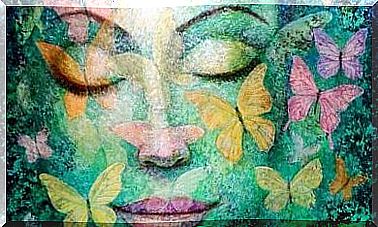The Illusion Of Control In Therapy

We’ve probably all had times when we wondered if it might be a good idea to see a psychologist. We have doubts and fears and seek advice from those around us. We may even be looking for alternative medicines and pseudoscientific therapies for peace of mind. We consult the help of specialists in search of a way out. Sometimes our emotional well-being can reach a point so deep that it seems that all light and hope is lost. We have the illusion of control, but are we really in control?
Once we’ve discussed our goals with our therapist, it’s time for energy and intention. The mountain that seemed too high now seems somewhat approachable. We feel that we are getting better and then we even tell ourselves that we are making progress, and we believe it more and more…Now phrases start running through our minds like “I can do it,” “Nothing bad has happened yet,” “Good times come with bad things”…When is it time to stop therapy?
The illusion of control
The illusion of control is something that is well known to psychologists and people themselves are aware of it, even if they may not have talked about it in so many words. We develop ways to fool ourselves, among other means of reasoning and thinking.
Control is one of the best known ideas. This is the feeling of dominating or controlling things that don’t really depend on us. A clear example of this is a gambler. He believes he uses strategies for uncontrollable games (such as roulette).

However, during therapy, and especially with certain diseases, the idea of control is risky. During therapy sessions, this illusion of control is one of the issues that can surface. It makes sense that when we free ourselves from our negative thoughts, we start to doubt whether we need help at all.
Thinking that you are better now is a positive thing, but you have to see it in relation to reality and never lose your perspective. It is one of the goals that therapists should work towards during therapy. Of all the possible reasons why a person may decide to stop therapy, the illusion of control is one of the most damaging. This is because of the consequences that unprepared relapses can have.
Importance of follow-up in therapy
When we start to see results in therapy, we focus on the next steps. We even envision our own goals and make decisions about how we feel. This is something very positive.
However, stopping harmful thoughts and bad habits does not mean that we have ‘control’ over them. This is when we should pay close attention during therapy and not give up on what made us better. Once we have solved the first problem, it is best to design a prevention plan that will allow us to track the results of the therapy. Otherwise, we may not develop complete strategies to get better or to stay better.

What happens if we have a relative or acquaintance who is currently at this point? In this case, the ideal would be to help him reinforce the new habits and strategies that got him there. Check for self-deception. The therapist will gradually schedule bi-weekly, monthly, quarterly, and semi-annual sessions before final discharge.
Then the process of ‘monitoring’ and supervision begins. You may start to doubt whether you are okay, or whether your loved one is. It’s risky just to say “I’m fine” when we have to face that illusion of control and take a closer look at the path we’ve traveled and not the goal. Remember that the goal is a result of the small steps you take along the way.









